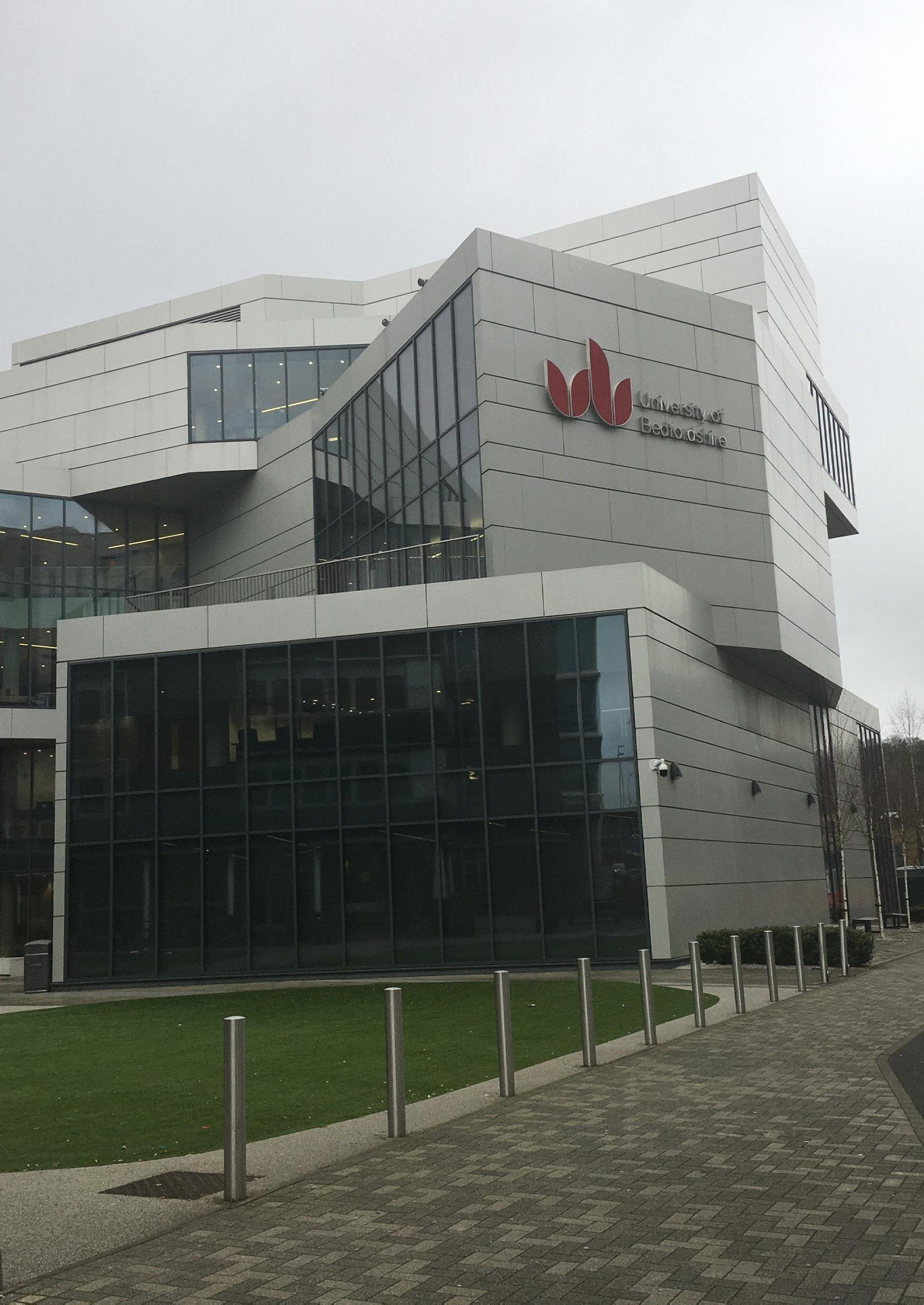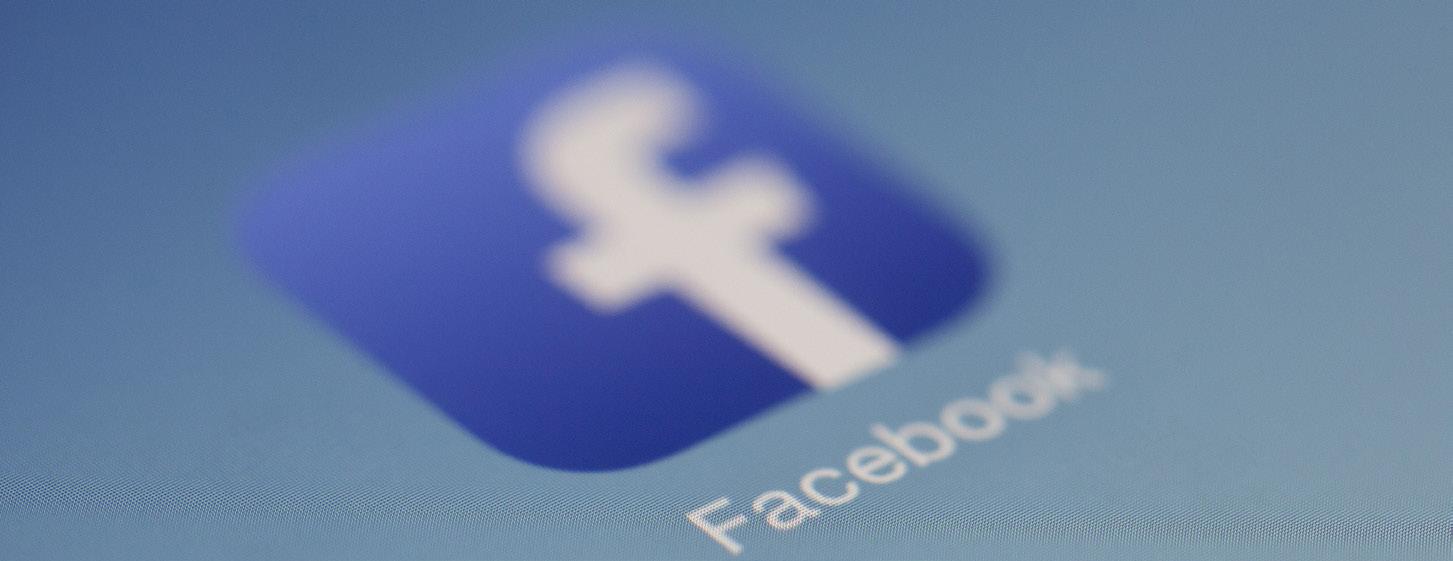
19 minute read
Bletchley Park’s Facebook donation
Bletchley Park receives Facebook donation
By BARTOSZ ROMANEK
Advertisement
Bletchley Park, the British codebreaking hub during World War Two, has received a £1 million donation from Facebook to help it through the Coronavirus pandemic.
The Bletchley Park Trust also welcomed the news that it will benefit from financial support from the Department for Digital, Culture, Media and Sport’s (DCMS)
Recovery Fund.
The help comes after the Bletchley Park Trust revealed in August that it was on course for a loss of £2 million this year after being hit badly by the implications of Covid-19 and months of no visitors.
Bletchley Park is where
British codebreakers including Alan Turing cracked
Nazi Germany’s notorious
Enigma machine.
This codebreaking allowed them to intercept messages with very crucial information about Hitler’s plans.
Iain Standen, CEO of Bletchley Park, said: “We are very grateful to both Facebook for their generous donation and DCMS for their financial support.
“Facebook’s donation highlights the ongoing legacy of pioneering technology developed here during World War Two.
“Whilst the Culture Recovery Fund demonstrates how vital it is to the nation to save heritage sites like Bletchley Park.
“With this significant support, we at Bletchley Park can weather the current crisis and survive into the future, keeping the doors open for future generations.”
Facebook’s donation will ensure that this tourist attraction, which showcases the monumental work of the mathematicians and scientists, can catch a fresh breath of positivity in these times where culture is badly affected.
Steve Hatch, Facebook’s Vice President for Northern Europe, said: “The historic achievements of Alan Turing and the Bletchley team have benefited all of us greatly, including Facebook, and we’re thrilled to help preserve this spiritual home of modern computing.
“The UK is our biggest engineering hub outside of the U.S. and responsible for significant technology developments including the Artificial Intelligence that keeps our community safe.
“This wouldn’t have been possible without the legacy of Alan Turing and his codebreaking colleagues, and our hope is that Bletchley staying open inspires the next generation of engineers.” Bletchley Park is open daily to visitors, who can explore the atmospheric codebreaking facilities and admire fascinating exhibitions in the museum - make sure to pre-book, though.
My Covid scare and testing nightmare
By HOLLY BROWN
Ihad washed my hands obsessively, worn my mask constantly and kept my distance ever since returning to university.
So, when I woke up on
Monday 28th September with a sandpaper-like throat, complimenting a throbbing headache and sweltering fever, I was frustrated to think:
“great...I’ve got Corona.”
This was followed by a myriad of emotions, including: Guilt - I didn’t want to be the reason my flatmates would be forced into quarantine or become sick themselves; Annoyance - I had been following the Government’s guidelines to the best of my ability, and I was meant to attend my first class of the year that afternoon; Fear - I have no underlying health conditions, but every news

outlet had warned me young people can still be horribly affected by the virus and I hadn’t been this ill for years.
I cycled through these thoughts in a horrible spiral that morning until I managed to think clearly again.
I came to the only rational conclusion that the safety and wellbeing of my friends and peers was the priority, so I went to the NHS website to book a test for later that same day, as advised.
After filling in all my information, I saw how few tests were available in the Luton area, and that number continued to drop before my eyes.
I Googled the closest walkable location listed, as I have no car and public transport wasn’t an option as I was symptomatic.
But, by the time I had completed the search, all of the available test slots were taken.
I decided to call the phone number provided on the website, and the lady who answered attempted to book me a walk-in test herself.
There was a lot of information to provide, which took time and meant all the tests were gone by the time we had finished.
She then suggested a home test could be delivered to me instead.
There were only a few test kits available so we had to be quick, but I had to repeat all my information to her so, as you can imagine, these tests were also all gone by then.
This was incredibly frustrating, especially since the paracetamol I had taken wasn’t offering any pain relief
just yet.
The lady was kind, but her advice was tiresome: just keep trying to refresh the website, maybe later there would be a test available.
At this point, I messaged flatmates to inform them I was symptomatic and would be self-isolating in my room until I was able to successfully book a test and get the results.
I was very aware of how much this information would impact them – 3 of them had planned to travel home for their birthdays that weekend.
I then emailed my lecturers to inform them of my absence, then I passed out in bed.
I woke up hourly to an alarm I had set to refresh the NHS website hoping for a chance to book a test, but I had no energy and apparently no luck.
Later, I woke to my phone ringing, and my friend had come to the rescue and managed to get on the website at exactly the right time to secure me a time slot for a test the very next day.
I heard my flatmates rejoice through the walls and, after thanking my friend, I promptly fell back asleep.
Tuesday, I woke up feeling like a bowling ball was battering the inside of my skull and I’d swallowed a large handful of rocks.
Reluctantly, I dragged myself out of bed and the building.
Google Maps loaded on my phone, I trekked the 2 miles to the test site.
In my opinion, walking a fair distance alone, to an unfamiliar location, whilst feeling unwell doesn’t seem safe or sensible.
It didn’t help that the address provided was incredibly vague (“car hire at Luton Airport, Percival Way”).
Myself – and it appeared several other masked individuals – were stuck wandering up and down the same long road searching for any sign that the site was close!
My time slot was coming to an end and I was worried I would have to go through the laborious booking process

again, delaying my flatmates’ birthday celebrations.
But, luckily, I spotted an A4 laminated piece of paper on President Way, which simply read “Covid test.”
If you have to go to this test site, a better description of its location would be: the car park of Eurocar at Luton Airport.
The test itself was ironically the easiest part of the whole experience.
I was directed to sit at a socially distanced table and passed (using a litter picker type tool) a test kit.
I followed the instructions in the pamphlet provided and swabbed the back of my throat and nose myself.
It was reasonably uncomfortable, but the discomfort was brief.
Once completed, I began the walk back to my accommodation.
At this point, I again will emphasise the lack of safety having to do this walk alone whilst feeling so ill.
A wave of fatigue hit me, and my fever rose to disorientate me further.
I remained in contact with my flatmate whilst walking home in the rain because I was genuinely concerned that if I rested for a minute or two on my way back (which I desperately wanted to) I wouldn’t have gotten back up, unassisted.
Safe to say when I did eventfully get back to my room I slept through the remainder of the day and the majority of the next.
Luckily the results came quickly - negative!
A massive relief for my family back home, my anxious flatmates and assumedly my lecturers.
Knowing it wasn’t Coronavirus made me very happy, but not any less ill.
I stayed in bed, but by Monday I was 100% myself again.
It’s a scary and disruptive time to be a student, with additional concerns and obstacles adding to the stress of studying.
This experience reiterated that 2020 will have to be the year that we all learn to be adaptable and determined.
How you can get involved in Radio LaB...
Looking to take up a career in radio? Or are you just looking for a new hobby? Either way, UoB’s radio station Radio LaB, is looking for volunteers to produce radio content. One of the station’s student managers, Megan Murphy, tells you more about the station and how you can get involved in making radio on a topic you love...
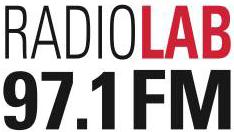
Hi everyone!
My name is Megan Murphy and I’m one of the
Student Managers for Radio
LaB in 2020/21.
I’m a third-year Radio &
Audio student here at the
University of Bedfordshire.
My team alongside me this year also includes Anthony
Reynolds and Rhea Howell, and we are all excited for a busy year with Radio LaB!
Now, what is Radio LaB you say?
Radio LaB is the University’s official community radio station.
We broadcast live across Luton and Bedfordshire, and online too!
From our most recent figures, Radio LaB is listened to by 9,331 people in Luton on a weekly basis (Blueprint Research).
Within that, over 5,800 of these listeners are young people between the age of 18-29 years old.
We see growth on these numbers year-on-year, and this year - we want to push them even further!
Alongside the team of Student Managers, we also have Radio LaB Coordinator, Terry Lee, in the team.
Terry Lee is a Senior Lecturer in Radio & Audio here at Beds.
Terry is responsible for our licences and is always there to offer guidance and support
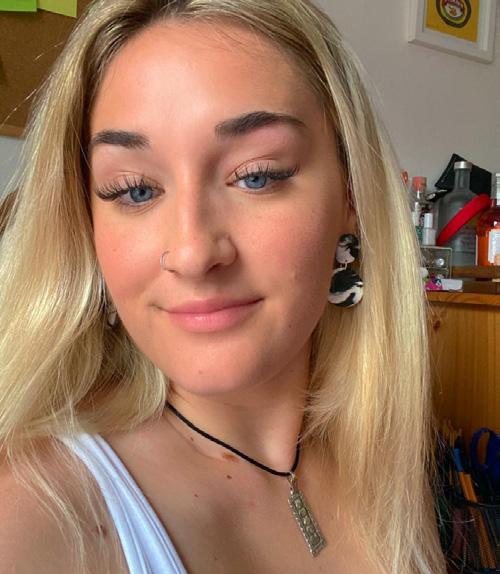
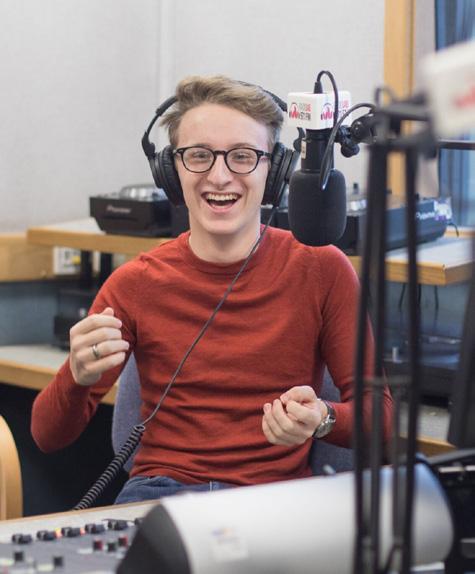
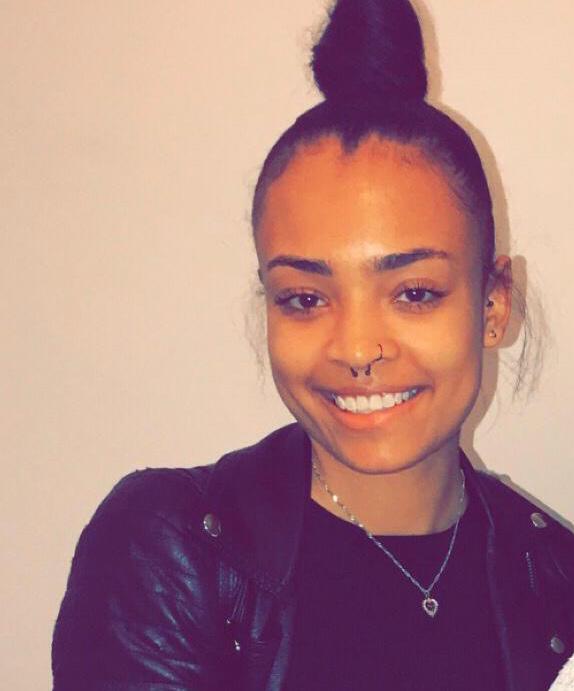
to us as Student Managers, and our volunteers too!
The past year has been big for Radio LaB; we won Best Outreach Project in 2019’s I Love Student Radio Awards, for our partnership with Luton Sixth Form College.
Also, in April, we saw Ofcom grant Radio LaB with a new licence to continue to broadcast on 97.1FM for another 5 years.
This means that the extension will now last until 2025.
Another big achievement was recent graduate James Montague taking home gold for the ‘Speech and Journalism of the Year’ award in the annual national Community Radio Awards - for his radio documentary titled ‘Autism and its Possibilities.’ The documentary was also broadcast on BBC Radio 4 over the summer.
We have several big plans as Student Managers for Radio LaB over the coming year.
We want to introduce more ‘Podcasting’ to Radio LaB, and aim to get more students aware of, and creating their own, podcasts.
We also want to begin working closer than ever with our new and existing volunteers to build better relationships with them - and, in turn, creating a stronger sense of community within Radio LaB.
We’re also aiming to introduce more specialised shows, such as Society Specials and Longer Documentary-Styled shows.
You have creative freedom to produce the content you want (as long as it follows Ofcom Broadcast rules!)
We welcome all your ideas and are on-hand for you to run by us any queries you may have.
Proper training and support will be given to all new volunteers.
We look forward to hearing some new voices on-air soon!
LISTEN!
You can listen to Radio LaB through Radioplayer at: radiolab.beds.ac.uk/player.
You can also tune into the station via your Alexa device - simply visit radiolab. beds.ac.uk to find out how to connect your device and start listening to Radio LaB today!
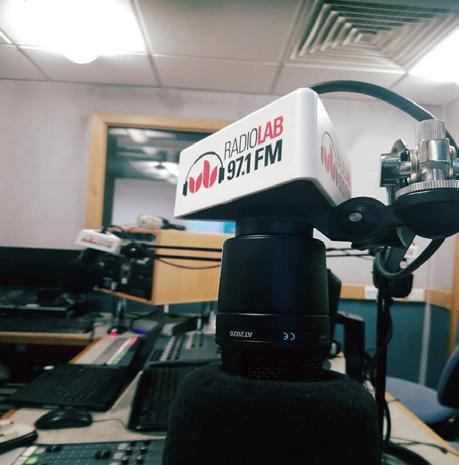
GET INVOLVED!
Becoming a volunteer and registering your interest to us is very easy.
Visit our website, www. radiolab.beds.ac.uk and click the red ‘GET INVOLVED’ button and fill out the form, or you can contact us through our social media accounts (@RadioLaB971FM), and emails: anthony.reynolds@
study.beds.ac.uk, megan. murphy@study.beds.ac.uk, rhea.howell@study.beds. ac.uk.
Bi-den, *All views and opinions are Jake’s own
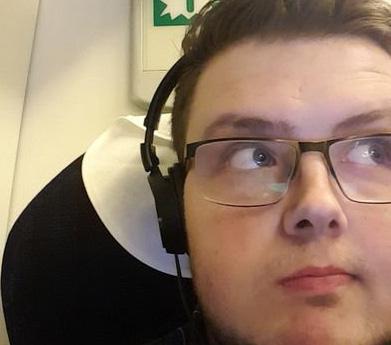
Donald!
Welcome to our monthly column from UoB graduate Jake Nichol. From now until the end of the year, he’ll be keeping you up-to-date with his thoughts on the upcoming United States Presidential election, and telling you everything you need to know about the 2020 campaign!
We have all heard the soundbites.
Every time the United States Presidential election comes around, those hoping for election - or more often re-election - regurgitate the same old lines about how “America is the finest democracy the world has ever seen.”
You know the ones: usually a Republican in a Bible-belt state in the south facing a proper challenge to their Senate seat for the first time.
Except that this so-called finest example of democracy on a rock 93 million miles from the Sun isn’t actually a democracy - and it hasn’t been since the start.
When they were writing the Constitution back in 1787, Thomas Jefferson and his fellow founding fathers, fearful of investing too much power in one individual, created what are known as checks and balances.
These intricate series of divvying up power among the executive (President), legislative (Congress) and judicial (Supreme Court) branches of the Federal Government are intended to ensure that one of the three can never wield excessive power over the others, and therefore prevent the tyranny akin to that of King George III that Jefferson and co were so desperate to escape.
A good example of checks and balances in action can be seen in the current goings on in the Senate about confirming President Trump’s Supreme Court nominee Amy Coney Barrett.
The executive has the power to nominate appointees to the Supreme Court, to which the upper chamber of Congress must provide its “advice and consent” before a judge can take their seat.
The Court then has the power to strike down any law

before it as “unconstitutional” and on we go.
One check the Founding Fathers put in against the executive branch was the Electoral College.
In short, when they cast their ballots on election day, Americans aren’t actually voting directly for Donald Trump or Joe Biden.
They are voting for a series of electors from their state to provide their state’s electoral votes, calculated by adding the number of Senators a state has, and the number of Representatives in the House.
This ranges from 55 for California to three in Wyoming.
To win the Presidency, a candidate needs 270 electoral college votes, out of total of 538.
The idea is that with each state providing varying paths of getting to 270, the Presidential hopefuls will pay enough attention to each

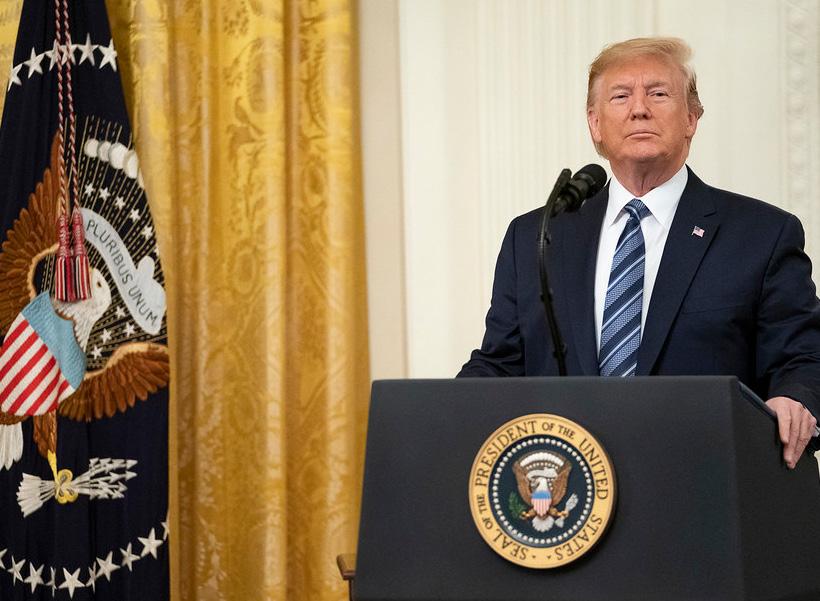
state, thus giving the people more access to those hoping for a tenancy agreement on 1600 Pennsylvania Avenue, and provide a check against the people accidentally electing a demagogue who the Founding Fathers feared would be a threat to the nation.
Some states, such as California (55) and New York (29) will always vote Democratic whilst others such as Oklahoma (7) or Texas (generally) (38) opt for the Republican on offer.
These states can be effectively taken out of play as it is almost certain which way they will go and the electoral votes can be placed into either Trump’s or Biden’s column.
States such as Florida (29), Pennsylvania (20), or Ohio (18) are known as swing states – meaning they chop and change from election to election and are the prizes each campaign clamour for, having sunk millions of dollars in ads and events in through the gruelling race.
It is therefore possible that a candidate can have fewer Americans vote for them in the election but win the presidency by virtue of having enough votes in the swing states to reach 270.

This is how Hillary Clinton won the popular vote by three million in 2016, but Donald Trump won the election.
Clinton’s problem, aside from running a terrible campaign, was that she got too many votes in the wrong places.
She won California, that bastion of Liberalism and coastal elites.
She won the state by around 30% and some 4.3 million votes over Trump, but in key places such as Wisconsin and Michigan, her campaign presence was nil.
Clinton lost in Wisconsin, Pennsylvania and Michigan by about 77,000 votes as people were turned off by her and her message and wanted something different.
It’s almost as if the political pull and acumen of Jay-Z counts for nothing in the industrial mid-west.
It is not the first time that a candidate won the election by losing either.
In 2000, Bill Clinton’s VicePresident, Al Gore, won the popular vote, but George W. Bush won the election after the controversy in Florida – the state where his campaign chair was secretary of state and brother Jeb the Governor.
Indeed, Democrats have won the popular vote in every Presidential election year since 1992 (bar 2004), and there are calls from some on the left to abolish the college as, on the face of it, in the so-called finest democracy in the world, the person with the most votes, wins.
Simple right?
Except that it isn’t.
Donald Trump knew he was too divisive to win the popular vote in 2016.
But he knew that if he campaigned solidly in the right places, he might just sneak across the line to 270.
And he did.
He played a blinder, as Clinton spent time pandering to all types of groups, trying to please everyone and pleasing no-one.
The college is effectively a 3-D chess game, where a positive move in one place might be a negative somewhere equally as important.
It ensures those hoping to be President share their time campaigning across the 50 states of the union.
Like most voters in other countries, Americans know bulls**t when they hear or see it, and the electoral college, for all its flaws, is the greatest check against the executive branch.
How video games could benefit your mental health during Covid
By JAMES DOYLE
Millions of people have been stuck in their homes over the past few months, due to the ongoing Covid-19 pandemic.
This means they have therefore been unable to properly communicate with friends and many family members.
People’s physical health has not been the only thing compromised over the last few months, as Covid has considerably worsened the general population’s mental health.
Young Minds, a UK mental health charity, concludes that the pandemic has had a dire impact on young people’s mental health.
They reported that 41% of people surveyed said that the pandemic had made their mental health “much worse” and a staggering 87% said they had felt lonely during the lockdown period.
Depression and anxiety in teenagers have been on a gradual rise in recent years, but the pandemic has highlighted the severity of the problem at hand.
Lots of people are searching for some form of engaging activity to keep them busy and have turned to gaming as a solution to their self-isolating problems.
According to a study conducted by the University of Hull, the number of users logging into gaming platforms has risen by up to 50% since lockdown in March.
To many, video games are often seen as merely a casual pass time, but during these uncertain times they have provided a sense of comfort and entertainment to a vast scope of people all across the world.
Due to the fairly bleak nature of recent world events, video games can offer a form of escapism and deliver a

place of comfort and relaxation for many gamers.
There have even been games specially designed around issues faced by young adults, with titles such as Life is Strange and Night in the Woods receiving critical acclaim for their focus on topics such as mental illness and drug abuse.
Researchers in New Zealand determined that teenagers with depression who regularly take part in gaming and online socialising actually had fewer severe symptoms of the illness.
The gaming industry is keen to push these ideas forward, too.
A large group of video game publishers came together to launch the #PlayTogetherApart campaign, which encourages players to game online with their friends, with The World Health Organisation (WHO) officially endorsing the campaign.
The best new releases to watch on Netflix
Katy Lelliott recommends some of Netflix’s new movie releases to add to your watchlist for your next film night
Ready Player One (running time: 2hrs 20mins)
In the year 2045, a teenager enters a virtual reality universe, becoming the unlikely hero through a contest to win the huge fortune of the universe’s deceased creator.
Now You See Me 2 (running time: 2hrs 9mins)
In the follow-up to 2013’s film of the same name, this sequel follows a group of clever fugitives recruited to steal a data chip. Featuring an ensemble cast including Jesse Eisenberg, Mark Ruffalo, Dave Franco and Morgan Freeman.
The Grinch (running time: 1hr 25mins)
Start getting in the festive spirit with this 2018 animation that follows a grump with a mean streak plotting to ruin Christmas for everyone, and the generous little girl who hopes to change his ways.
Paranormal Activity (running times vary)
Netflix has almost the whole collection of the Paranormal Activity horror films, ensuring you won’t be able to sleep tonight as the plot centres on a young couple whose home is haunted, so they set up a camera to document what is happening.
Hubie Halloween (running time: 1hr 43mins)
Starring an all-star cast including Adam Sandler (who also wrote the film), Julie Bowen and Ray Liotta, this comedy-horror follows a Halloween lover who is forced to save his
town from a kidnapper.
Rebecca (running time: 2hrs 3mins)
This Netflix Original - starring Lily James and Armie Hammer - follows a young newlywed who moves in with her husband and is forced to contend with the ghosts of his past, in the form of his sinister housekeeper and the presence of his late wife.

